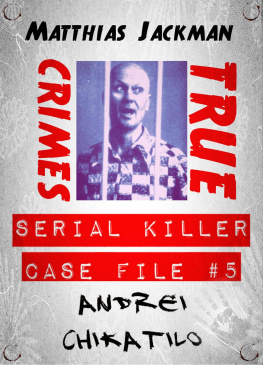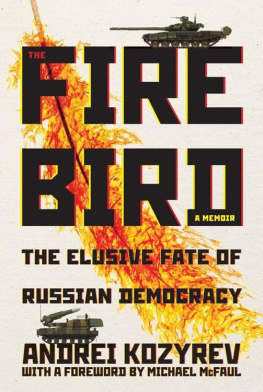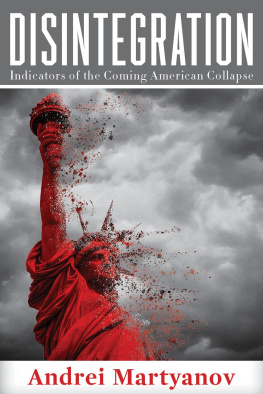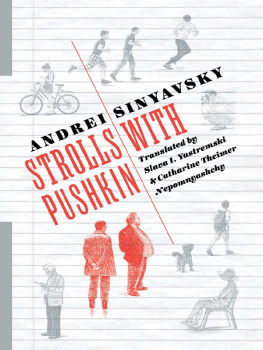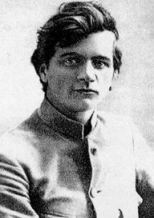Adam Bodor
The Sinistra Zone
1. COLONEL BORCAN'S UMBRELLA
Two weeks before he died, Colonel Borcan took me with him on reconnaissance to one of the barren heights in the Dobrin forest district. He asked me to keep my eyes open, especially on the mountain ash trees, whose clusters of little red berries stood out in the roadside scrub, to see if the waxwings had yet arrived. It was mid-autumn, and the brush was abuzz with unfamiliar sounds.
Such patrols by the forest commissioner began with a visit each morning to the bear reserve, where he sized things up. On the way home while ambling along some mountain ridge, breathing in the intoxicating silence of the preserve, and perking his ears to the babbling brooks in the valleys below he would formulate a report on what he had seen. Now, though, making his way along all but impassable trails by following markers left by the mountain infantrymen, he was headed straight for a secret lookout. Word had it that the waxwings had indeed arrived, and in their wake so too had the fever that visited this forested region each winter and that, in the Sinistra Zone, was for some odd reason called the Tungusic Flu.
An open rest area of sorts constructed out of lichen-splotched rocks and padded with moss awaited Colonel Borcan at the summit. On reaching it he dropped his leather umbrella, the sort used by the mountain infantry, on the grass nearby. Then he loosened his greatcoat and found a comfortable spot to sit down. He removed his cap, too, anchoring it under on a few rocks. Bareheaded, his hair fluttering in the wind and his earlobes turning red, he sat there for hours on end, eyes glued to binoculars he trained on the eastern horizon.
This secret vista a crag that jutted out slightly beyond the spruces and firs formed a rocky part of the crest of Pop Ivan Mountain. From it you could see far across the border to the bluish, rolling, forested hills of Ruthenia. Dark smoke rose from behind the furthest hills, perhaps from as far away as the open country beyond. As if night were already coming on, a purplish curtain draped the horizon to the east, but it faded with the rising sun.
When, hours later, the valley filled with the opalescent lights of afternoon, the forest commissioner packed away his binoculars and picked up his hat: the reconnaissance had come to an end.
Whether he had in fact caught a glimpse of what he sought on the slopes across the way of the waxwing or some other sign of the Tungusic Flu approaching from bush to bush this was to forever remain his secret; nor did I ever figure out why he had taken me a simple harvester of wild fruits, and a stranger at that along to the Ukrainian border that day.
On the way home, once we were down in the valley, he asked if Id seen a waxwing. I did, I replied, two, maybe three, whereupon Colonel Borcan announced he would put in an order for inoculations.
We were already near the barracks when the colonel the only mountain infantryman who roamed those dank forests both summer and winter with an umbrella under his arm once again dropped that umbrella on the grass and removed the binoculars from their case; for it so happened that the stranger whom folks around there called the Red Rooster was at that very moment walking along the edge of the blanched autumn hayfield beyond the stream.
Feet hardly touching the ground, the Red Rooster moved along the ridge of turf that marked the border between forest and field; his red hair and beard blazed against the black of the spruces and firs. Through his binoculars Colonel Borcan followed him until the Red Rooster disappeared into a lustrous yellow swarm of birch leaves. Then he spoke to me, in a hushed, almost intimate tone.
Andrei, you sure you didnt get a little package for me, by mistake? He must have gathered from my confused stare that I barely understood what hed said, for he added, Just a freshly caught fish?
Although the question was odd, as was his bereft expression when I replied that I had no package for him, I would no doubt have forgotten the episode entirely except that not long after that, the Red Rooster called on me at the fruit depot, with a fogged-up plastic bag swinging from his hand: in a little water, glistening at the bottom, was a fish. This bag and its contents would rightly have been the forest commissioners. By that time, however, Colonel Borcan was no longer alive.
Most residents of the Sinistra Zone have dark brown or black hair. Blondes are awfully rare; redheads, nonexistent with one exception: Bebe Tescovina, the commissary managers little girl. Everyone around there knew Bebe for her orange-red hair, shining from afar like mountain ash berries. Since the locals werent in the habit of dyeing their hair, whenever another redhead chanced to turn up, everyone knew at once, even from a distance, that it could only be a stranger passing through.
The Red Rooster seemed to be an idle wanderer. As he cut across the slopes with those easy steps of his, his hair and beard would suddenly glimmer against the blackness of the spruces and firs like a rosebush full of luminescent red hips. It was mid-autumn when he arrived, and the rosehips were in fact ripening under the bite of early frosts. One morning, tracks left behind by foreign-made rubber boots appeared on those frosty trails. His boots.
He was a slight, wispy fellow who spoke Ukrainian, Romanian, Hungarian, and even Carpathian German. But he spoke none of these well. The Red Rooster probably didnt have a decent command of a single language spoken around here. Even his way of walking, a self-assured swagger, wasnt the way the locals walk. Besides, he seemed to spend all his time outside, as if to leave no doubt in anyone who might see him that the only reason he was rambling along the Sinistra River was to gaze in awe at the mist-shrouded mountaintops.
In the vicinity of Dobrin, where this stranger paid his respects almost every day, the Sinistra branched off into various smaller streams, and steep valleys cut deeply down the ascending face of Pop Ivan Mountain. Winding their way along water-worn ravines up to the mountains rocky ridge were barbed-wire-wrapped steel rods, concrete posts, and watchtowers: the gullies were laid with traps. The border ran along this watershed ridge. The thick web of fences, ditches, and various other obstacles opened at just one crack in a drafty mountain pass: only from there did the old dirt road go somersaulting into the hills beyond, bathed in the foreign lights of the north.
At that point a blue-and-yellow crossing gate blocked the road, and a tiny guardhouse stood beside an old canvas tent full of shivering soldiers. Although this was the only operating border post in the Sinistra Zone, the gate was lifted just once a week, for a few hours every Thursday morning. The soldiers on patrol marked the occasion by nosing about each others side of the border for a bit in the spirit of military brotherhood, and the two or three civilian vehicles with a permit from the regional authorities to travel this route would then cross over.
The Red Rambler, as he was also called whose hair, dress, and slapdash posture gave him away as a foreigner even at a distance did not show up for the first time on a Thursday, but on a Saturday. Masons dismantling the forest chapel happened upon his tracks one morning; and hours later, Gza Kkny, a night watchman who spent his insomniac days in a watchtower at the edge of the village, spotted the redheaded stranger descending the slopes of Pop Ivan Mountain. He seemed to move as easily as the wind about the barbed-wire-tangled brush. Down below, he was asked more than once for his papers, but the infantrymen found his I.D. in order even if it was, after all, presumably forged.
He wore brown rubber boots and a gray felt jacket of the sort worn on the far side of Pop Ivan Mountain a jacket with patches of green corduroy. His narrow-brimmed hat, ornamented with kestrel feathers, dangled on his back from a long cord. Fluttering from the top of his head was that crest of red hair, and a rakish beard, parted down the middle, decorated his chin.



